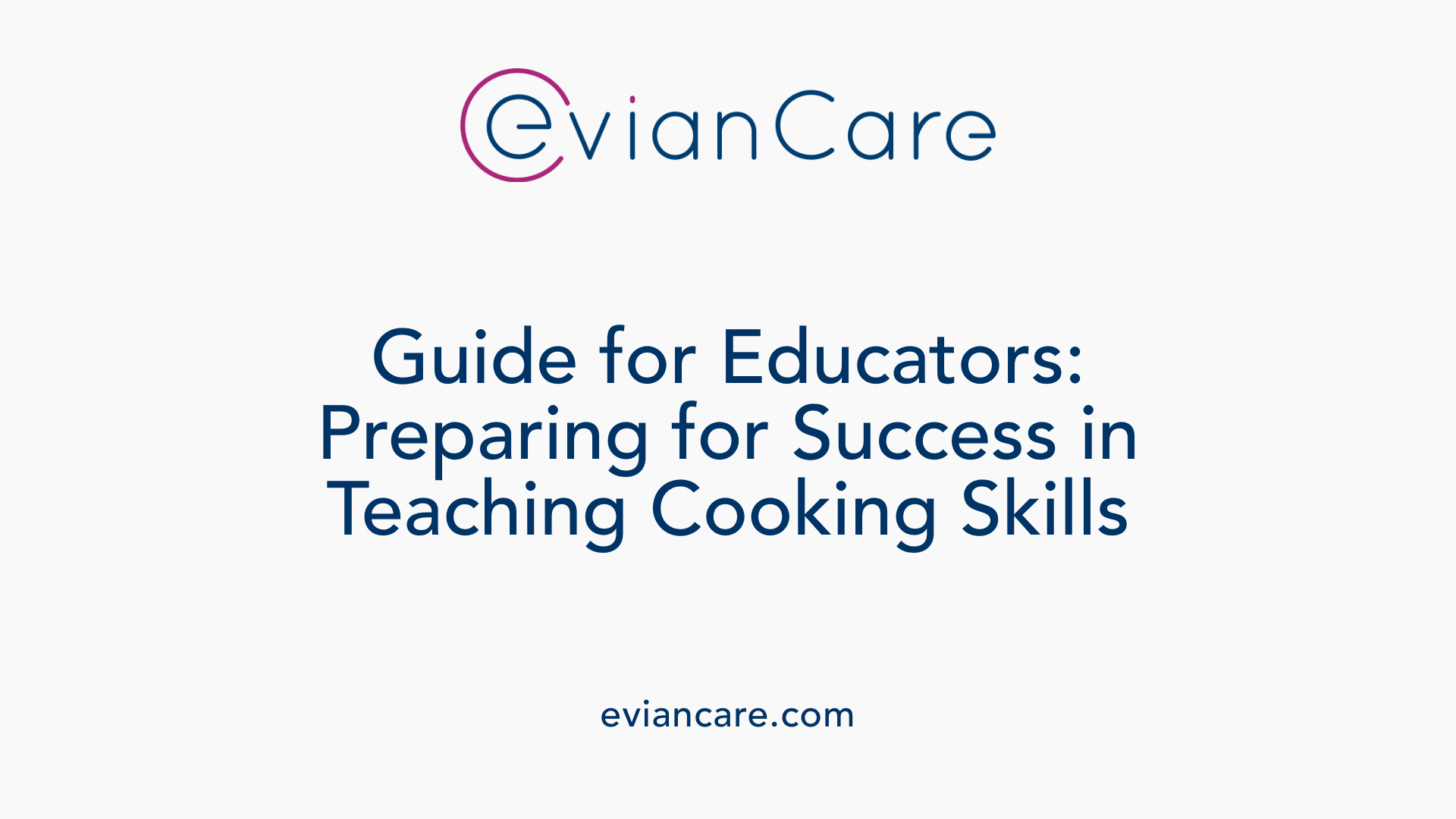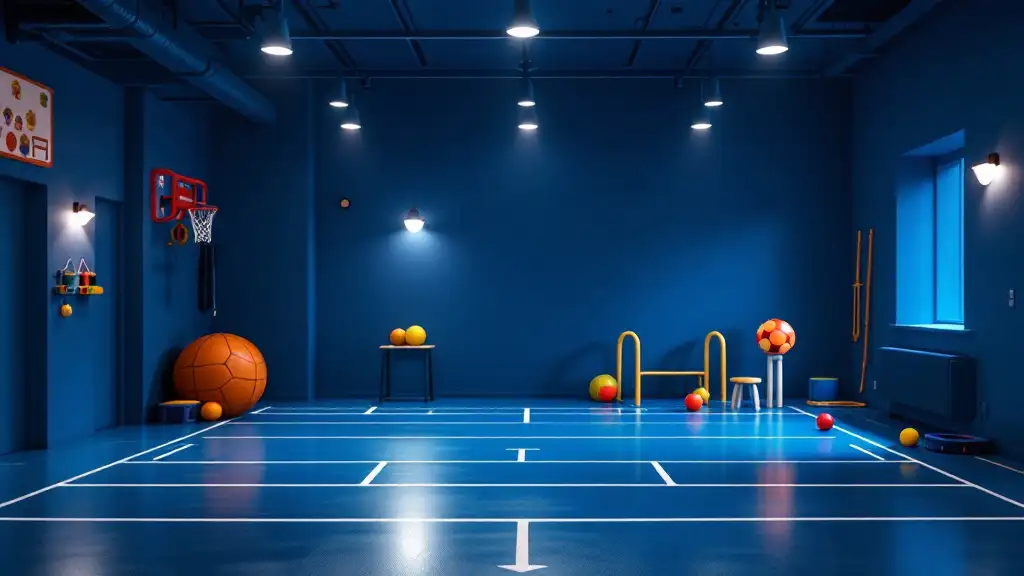
Unlocking Culinary Skills through Developmental Disability Programs
Developing independent cooking skills is a vital step toward fostering autonomy and enhancing the quality of life for individuals with developmental disabilities (DD). Through specialized programs and evidence-based strategies, people with DD can learn to prepare meals safely and confidently, opening doors to increased self-sufficiency, nutritional health, and social engagement. This article explores how targeted interventions, resources, and best practices within DDD initiatives support this important goal.
Resources Supporting Culinary Skill Development in DDD Programs

Are there resources available within developmental disability programs for learning culinary skills?
Yes, there are many resources designed to help individuals with developmental disabilities (DD) acquire cooking skills, promote independence, and improve nutrition. Programs such as Accessible Chef provide over 300 visual recipes and visual aids tailored specifically for learners with disabilities. These tools use step-by-step images and simplified instructions to make cooking tasks manageable.
Assistive technologies play a significant role too. Recipes compatible with cooking apps, prompts, or virtual guidance support learners throughout the cooking process. Adaptive kitchen equipment, like utensils with special grips or accessible appliances, make cooking safer and easier for individuals with physical disabilities.
Structured curricula and certification programs enhance learning and employment prospects. For example, the Bloom Culinary Training Program and the Culinary Opportunity Program (COP) offer hands-on classes that teach essential skills such as food safety, meal preparation, and proper hygiene. Participants often work towards certifications like ServSafe, which can support career development.
Organizations focusing on food literacy and health—like the national health and nutrition programs—integrate culinary education into their offerings. They emphasize not only how to cook but also the importance of healthy eating, dietary variety, and sustainable practices.
These resources collectively aim to foster independence, improve dietary habits, and create social and vocational opportunities through accessible, engaging culinary education tailored for individuals with DD.
Strategies Employed in Cooking Skills Instruction

How do programs like DDD support teaching cooking skills and fostering independence?
Programs such as the Division of Developmental Disabilities (DDD) play a significant role in promoting cooking skills and independence among individuals with developmental disabilities. They do this by implementing evidence-based methods, including visual supports, structured task analysis, modeling, prompting, and reinforcement. These structured approaches break down complex cooking tasks into manageable steps, making it easier for learners to understand and replicate the processes independently.
Visual supports like picture-based recipes, illustrated instructions, and videos serve as effective tools to guide learners through each stage of meal preparation. For example, visual recipes help individuals identify materials, measure ingredients, and follow sequencing, which increases their confidence and safety in the kitchen. Programs also incorporate modeling, where instructors demonstrate cooking tasks, and then prompt and reinforce correct actions, which helps reinforce learning and boost motivation.
Gradually, participants transition from guided activities with supervision to performing tasks independently. Emphasis on safety, such as proper use of kitchen tools and appliances, is included throughout the training. This stepwise approach ensures sustainable skill development and promotes self-sufficiency.
Overall, these initiatives support not only basic cooking skills but also broader independence, nutritional knowledge, and social engagement. They aim to empower individuals with developmental disabilities to confidently prepare meals, enhance their nutritional health, and participate more fully in social and employment opportunities related to food preparation.
Effective strategies like video modeling, task analysis, visuals, and reinforcement
| Strategy | Description | Benefits |
|---|---|---|
| Video modeling | Demonstrates cooking steps via videos | Enhances understanding and imitability |
| Visual recipes & pictures | Uses images to explain tasks | Improves recall and sequencing |
| Task analysis | Breaks down tasks into smaller steps | Facilitates step-by-step learning |
| Reinforcement | Rewards correct actions | Motivates continued effort |
| Systematic instruction | Planned, structured teaching | Ensures consistency and progress |
These methods are supported by research demonstrating their effectiveness in teaching functional skills, including cooking, and promoting independence among individuals with developmental disabilities.
Assessing and Preparing for Successful Kitchen Learning Experiences

What guidance is available for educators and caregivers to promote independence in cooking for individuals with disabilities?
Supporting individuals with developmental disabilities in acquiring cooking skills involves strategic instruction and tailored support. Educational programs recommend using adaptive techniques and visual aids, such as picture-based recipes and step-by-step instructions, to facilitate understanding.
Involving occupational therapists can personalize activities to meet individual needs, focusing on essential actions like opening containers, measuring ingredients, and pouring liquids. These functional tasks build confidence and foster independence.
Creating a positive, engaging learning environment encourages social interaction and motivation. Using feedback tools, for example, snack review forms, enhances communication and helps learners understand their progress.
Furthermore, integrating psychological theories like Seligman’s PERMA model can enhance program design. This model emphasizes positive emotions, engagement, relationships, meaning, and achievement, all of which contribute to both skill development and overall well-being.
By combining structured instruction with emotional and social support, caregivers and educators can significantly improve the chances that learners will develop autonomous cooking skills, leading to increased confidence, independence, and improved quality of life.
Implementing Best Practices in Cooking Skill Programs
When developing effective cooking programs for individuals with disabilities, it is essential to tailor activities and utilize adaptive equipment to meet each person's unique needs. For example, using visual supports such as pictorial recipes and step-by-step guides helps learners understand and follow cooking tasks independently. Incorporating assistive devices like easy-grip utensils or accessible kitchen tools can also facilitate participation for individuals with physical disabilities.
Focusing on practical, real-world tasks ensures that skills learned are relevant and transferable to everyday life. Participants should engage in activities such as grocery shopping, measuring ingredients accurately, and practicing kitchen safety protocols. These tasks not only develop culinary skills but also promote broader independence and health awareness.
Creating a positive environment that motivates learners and encourages confidence is vital. Providing consistent feedback, reinforcement, and celebrating successes helps foster motivation. Professionals trained in occupational therapy or special education, along with structured programs, can guide participants through the learning process. Programs like "Cooking Up Fun" emphasize hands-on involvement, planning, and guided instruction, which have shown to improve skill acquisition.
Involving participants in every phase of cooking—from selecting recipes to plating the final dish—builds a sense of autonomy. This comprehensive approach supports the development of social, cognitive, and motor skills, ultimately enhancing self-sufficiency and quality of life for individuals with disabilities.
Implementing these practices within a supportive, safety-conscious setting not only teaches essential life skills but also nurtures motivation and enjoyment. Using visual aids, adaptive tools, practical exercises, and professional guidance creates a well-rounded, effective curriculum that empowers learners to succeed.
Evaluating Program Outcomes and Benefits

What evidence exists on the effectiveness of structured cooking programs for individuals with disabilities?
Research and real-world implementations have shown promising results from structured cooking programs aimed at people with developmental disabilities. These programs utilize instructional strategies like task analysis, visual supports, modeling, reinforcement, and feedback to teach essential cooking skills. For instance, the "Cooking Matters for Adults" initiative has demonstrated improvements in participants’ ability to prepare healthy meals and build confidence in the kitchen. Participants reported increased dietary variety and a better understanding of nutrition, which supports healthier lifestyles.
Furthermore, pilot programs such as the Chef-ID have exhibited significant increases in independence with cooking tasks. Participants successfully learned to prepare bread and other simple foods, with their skills remaining stable even when external assistance was gradually phased out. These programs also foster social engagement and emotional well-being, as individuals share meals, work collaboratively, and gain a sense of accomplishment.
Evidence also highlights that integrating teaching methods like visual recipes and assistive technology can make cooking accessible and safe. Adaptive kitchen tools and clear instructional materials help participants with diverse needs practice independently, boosting their self-efficacy.
In summary, the accumulated evidence confirms that carefully designed cooking interventions not only improve practical skills but also enhance social, emotional, and health-related outcomes for individuals with disabilities.
Fostering Independence: The Path Forward
Developmental disability programs play a crucial role in equipping individuals with the necessary skills to become more independent in cooking. Through a combination of accessible resources, effective instructional strategies, tailored support, and evidence-based curricula, these initiatives can significantly enhance functional abilities, improve health outcomes, and promote social engagement. Ongoing evaluation and adaptation of program components ensure maximal benefits, helping individuals with disabilities thrive in their daily lives and achieve greater self-sufficiency.
References
- Teaching Individuals with Developmental Disabilities Basic Cooking ...
- Helping Individuals with Intellectual Disabilities Learn to Prepare ...
- Accessible Chef – Accessible Cooking for Budding Chefs
- Program Pilot is a Recipe for Success! - Easterseals PORT Health
- Feasibility and preliminary efficacy of a skill-based lifestyle ...
- Cooking Up Competencies Through On-the-Job Training
- Cooking Matters Program | Empowering Adults with Developmental ...
- Independent Life Skills for Adults with Developmental Disabilities
- [PDF] Developing Independent Living Skills in People With Intellectual or ...












